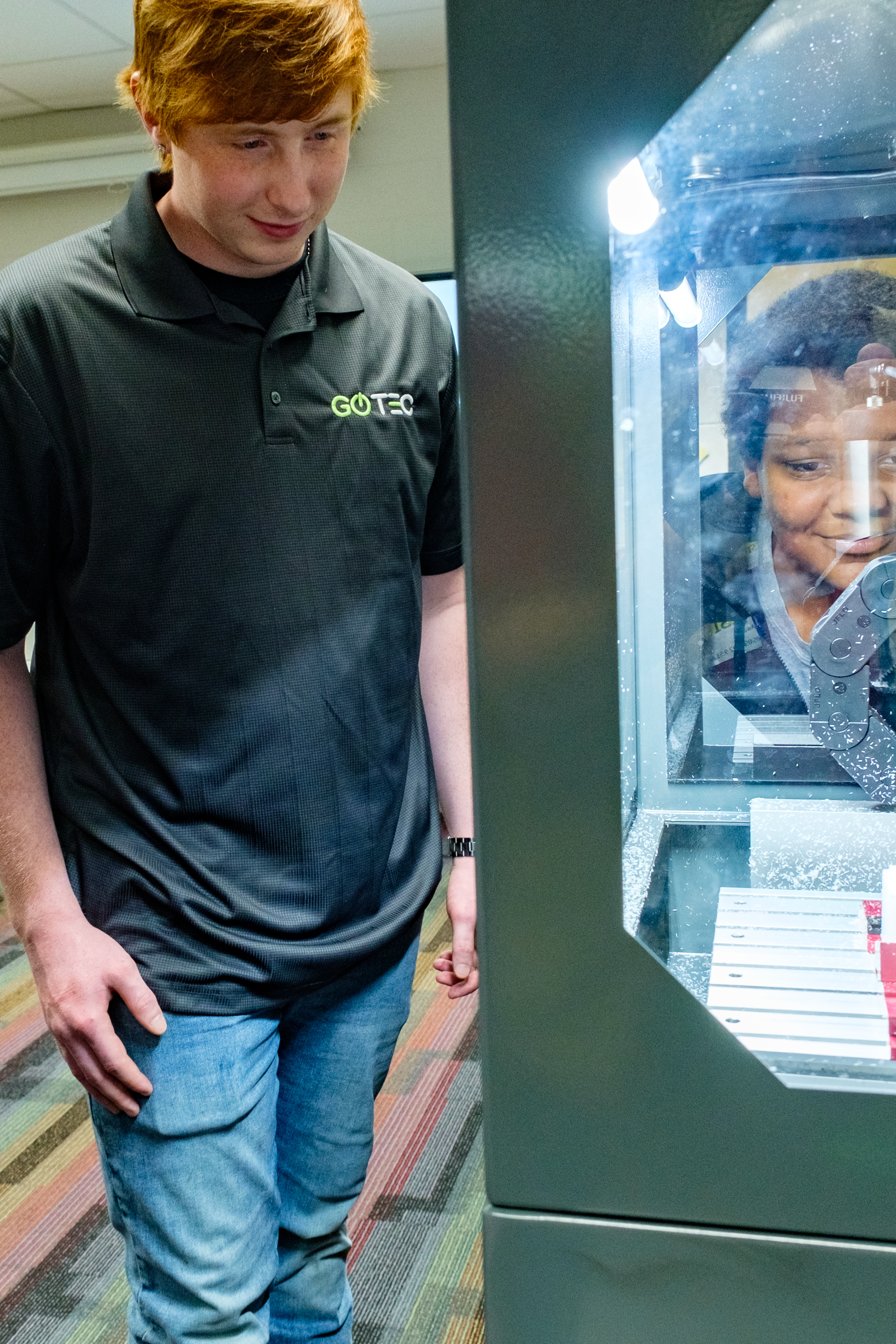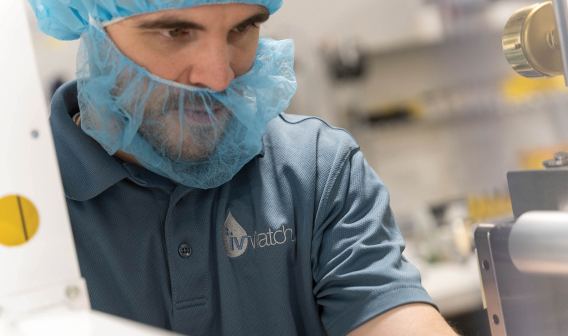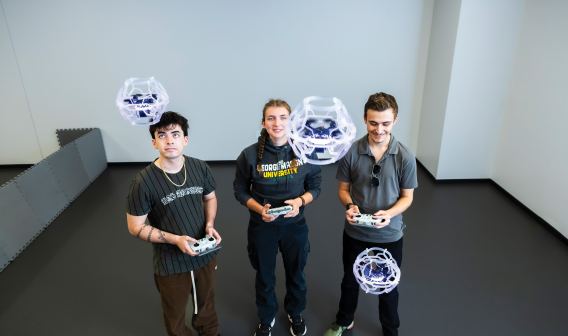
GO TEC at Gretna Middle School, Gretna
The Great Opportunities in Technology and Engineering Careers program (GO TEC) is on a mission to develop a broad talent pipeline for advanced manufacturing companies in Virginia — a serious mission that begins with play.
In Career Connections labs in middle schools across Virginia’s southern border, from Washington County in the west to Greensville County in the east, students now have the opportunity to test virtual reality welding equipment, code a Raspberry Pi computer, and streamline ice cream assembly workflows, all while building excitement around the skills needed to succeed in future advanced manufacturing careers.
The program has thus far brought its innovative approach to 18 middle schools across a broad swath of the southern half of Virginia, and is looking to expand beyond the 7,000 students it currently serves.
“You can never start early enough in educating young people about career opportunities, many of which are in their own backyard and that they don’t even know are there,” said Dr. Julie Brown, director of advanced learning at the Institute for Advanced Learning and Research (IALR) in Danville, which manages the program.
“By preparing our young people for well-paying, in-demand careers in the region, GO TEC will give them a reason to stay and sends a strong message to industry that Southern Virginia is serious about delivering a skilled workforce,” said Dr. Betty Adams, chair of the GO TEC Advisory Board and executive director of the Southern Virginia Higher Education Center in Halifax County, one of several area post-secondary educational institutions partnering on training.
Career Connections labs expose students to potential careers they can pursue with technical courses and college dual-enrollment programs in high school and beyond. Each lab promotes engagement in topics including precision machining, welding, information technology and cybersecurity, robotics, automation, mechatronics, and advanced materials, with some flexibility to meet a region’s specific needs.
Learning modules each feature a technology centerpiece that affords students unique hands-on opportunities. This includes heavy-duty training technology such as VEX robotic kits, DOBOT Magician robotic arms, and a Haas desktop Computerized Numerical Control (CNC) mill that fully replicates the controls on advanced CNC equipment at a significantly smaller scale.
The GO TEC labs take “a traditional, one-dimensional description of a skill and bring it to life as a dynamic, three-dimensional experience,” said Jason Wells, president of custom cutting tool manufacturer Kyocera SGS Tech Hub in Danville and a member of the GO TEC Advisory Board. As Wells put it, engaging with students at an early age in a way that integrates their passions into an industrial setting allows parents and students to experience industrial career tracks in a way that “inspires while removing antiquated stereotypes of careers in manufacturing.”
GO TEC partner schools are working to break down stereotypes that have impacted the manufacturing sector’s ability to recruit. HR advisor UKG found in its 2021 Future Manufacturing Workforce Study that three in four manufacturers report difficulties in attracting and retaining Gen Z workers, making this sort of early connection of paramount importance.
Brown notes that GO TEC has already demonstrated its success in creating a bigger funnel for talent development through robust private and public sector partnerships. Now the program — which, in addition to Kyocera, counts area companies Eastman Chemical Company, Intertape Polymer Group, Microsoft, Nilit America, and Scholle IPN as corporate partners — needs support from industry as it scales into other regions.
“For those of us who are hiring managers in the region and state, the lessons learned in this state-of-the-art lab provide a foundation that cultivates world-class future employees,” Wells said.




